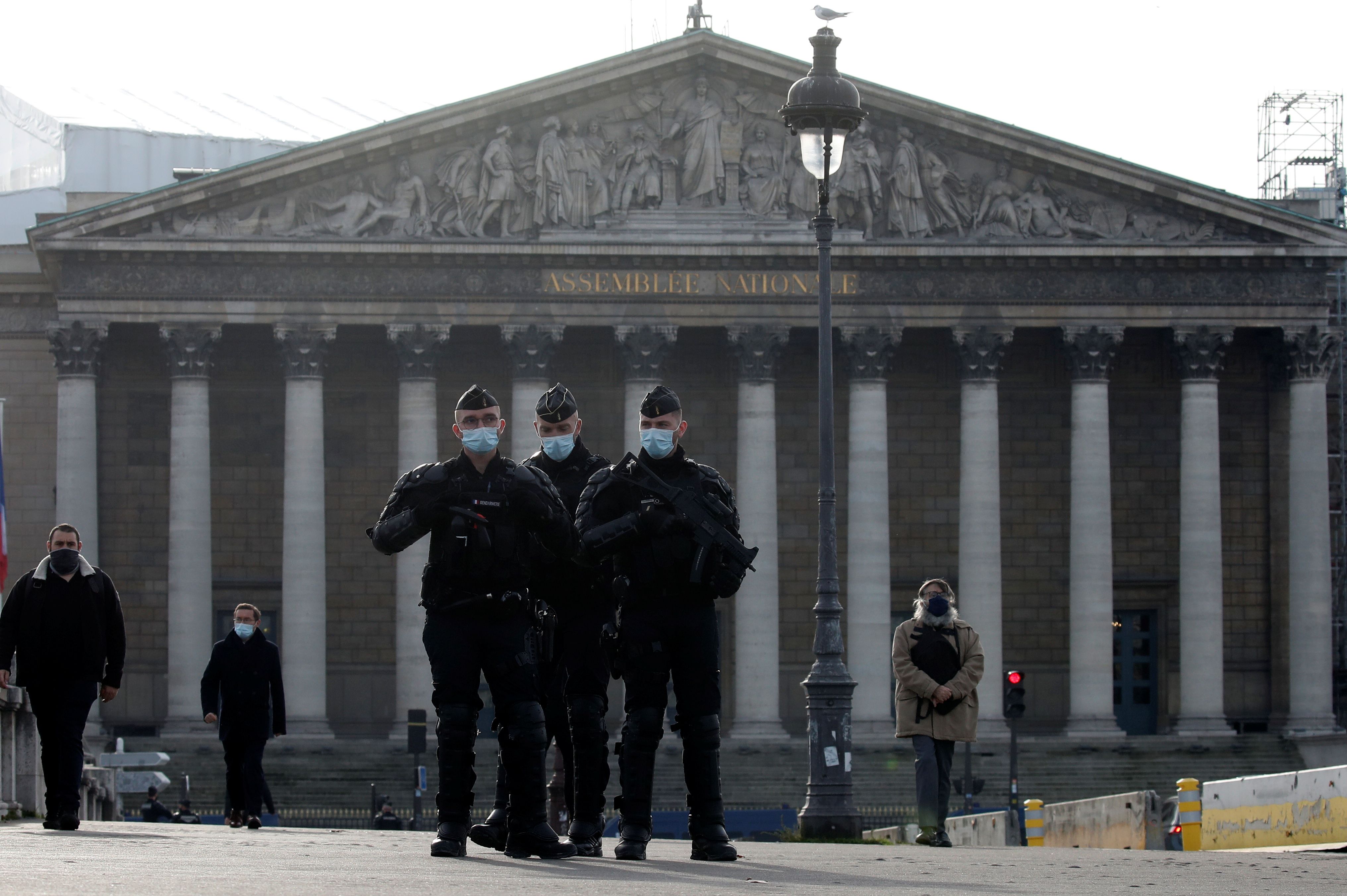French Authorities Playing a Risky Game with Security

A series of terrorist attacks since October has renewed in France the discussion about security and the integration of its Muslim population. The high level of immigration (274,000 residence permits issued in 2019) as well as rejection of secularism by a significant part—although not the majority—of French Muslims faces a backlash. Research conducted in 2019 revealed that 41% of Muslims agreed religious practices should adapt to the secular society, but 27% prioritise sharia law over civil law. The percentage is even higher among Muslims under 25 years old—31%.
The increase of religiosity and conservative attitudes among Muslims is accompanied by growing right-wing moods in the rest of society, especially visible among voters supporting Macron and his party, La République en Marche (LREM). The authorities will face growing difficulties meeting both the rising expectations of right-wing voters and the centrist electoral base from 2017.
Government’s Actions
A draft law reinforcing republican principles concretises the programme of fighting Islamist extremism, announced in October by the French president. The bill boosts state control over associations in charge of French mosques. When these organisations apply for public funding, they will have to declare accordance to the “principles of the Republic”, risking a loss of funds if the pledge is not kept. That will make it easier for the authorities to dissolve the association, for example, when one of its members commits a crime related to membership in an Islamist group. The religious associations also will be controlled more assiduously when it comes to foreign funding of them.
The public schools are another area that contribute to fighting extremism. The government aims to limit homeschooling (about 60,000 pupils in France) to individual cases related to health issues, sport or artistic activities, or long distance to a school. This step should prevent in practice religious Muslim parents from stopping girls’ education early. Every minor under 16 years old will have a personal ID number to make monitoring education participation easier. A separate regulation will hasten the closing of unregistered schools and educational or sport associations that can be used as cover for activity not aligned with republican principles.
The law also reinforces the autonomy of the individual towards his/her family by limiting the possibility of discriminating against women in the passing on of wealth placed in France but inherited in accordance with a foreign law. It also bans polygamists from obtaining a residence permit. Public officials will have more competences to prevent possible forced marriages and doctors may not issue “certificates of virginity”. The bill highlights the demand of religious neutrality from public officials and all persons executing tasks ordered by public administration. The government claims some local communities have been too compliant with the demands of religious groups and aims, therefore, to enable prefects to replace the local administration in some cases.
The associated penal regulations of this law also stir emotions. Persons indicted for inciting or approving terrorist acts will be added to a special register that had been limited to only perpetrators of such attacks. A new type of criminal offense is also being created: exposing a person to the risk of death by disclosing information about his/her private or professional life or allowing to locate this person or a member of his/her family.
These regulations correspond to another bill, presented simultaneously by the government, concerning so-called “global security”. The bill has been created to meet the demands of police trade unions calling on the authorities to reinforce the security of police officers. The first draft of the bill prohibited any publication of their likeness. After protests, this regulation has been limited to a ban only on publishing with the direct intention to endanger the physical or mental health or life of the officers. The bill contains other controversial regulations of civil liberties: it increases the competences of private security agencies, allowing them to patrol streets in some cases.
Reactions
A large majority of French—76%—expressed support for the law reinforcing the republican principles. Some state, at the same time, that the divisive, far right-like narrative used by some members of government, especially by the Minister of Interior Gérald Darmanin, does not help fight extremism. The left-wing opposition is criticising the authorities for not complying with Macron’s promises to balance the security regulations with a package of financial support for infrastructure and cultural facilities in the French suburbs.
This law has also stirred up emotions abroad among some French Muslims. The discussion was poisoned by the terrorist attacks in October, especially the killing of middle-school teacher Samuel Paty, who had presented to his pupils the Charlie Hebdo caricatures of Muhammed in his classroom. By standing unequivocally for freedom of speech, including the right to blasphemy, the authorities had to deal not only with attacks from France’s international rivals like Turkey, but also from Egypt, Saudi Arabia, Qatar, and even Russia. What is more, Macron’s plans have been acerbly criticised by liberal sides, including by some in English language press, accusing France of islamophobia and limiting religious freedoms.
The bill on “global security”, which included the controversial regulation banning the publication of police officers’ images, is supported by a majority of the French (58%) but has provoked strong opposition from journalists and civil-rights activists. Centrist parliamentary groups MoDem and Agir, which are part of the ruling majority, also expressed their opposition to the bill. The debate has been only inflamed by the revealing of recent cases of police violence: on 21 November, a group of officers beat a Black citizen for not wearing a mask; on 23 November, an illegal camp of refugees in the centre of Paris was brutally dispersed. If the law took effect, it would have been difficult to inform the public about these events. After being criticized by the European Commission and the mass demonstrations of 28 November and 5 December, the authorities decided to rewrite the controversial regulation.
Conclusions and Prospects
Macron’s actions aimed at boosting security and social cohesion are gaining support from right-wing voters and increasing their trust in the president. However, by limiting the problem of integration to assimilation and as a challenge to security, the authorities risk further alienation of immigrants. This contributes also to fading the ideological image of LREM, embittering the ruling party’s relations with its allies, and increasing the outflow centrist and left-wing voters—reaching already 2.5 million in polling. The divided left may not be dangerous right now, but a weakened LREM combined with the popularity of the right-wing narratives can be beneficial to the right-wing Republicans (LR) and National Rally (RN). This could mean Macron’s re-election in 2022 could come at the cost of a loss of the majority in the National Assembly.
Both the law on reinforcing republican principles as well as the one on “global security” may have a serious impact on the foreign policy of France. Although solutions reinforcing the integration of French Muslims with the rest of society are necessary, their presentation in tones of paternalism or a conflict of cultures may deteriorate France’s relations with Muslim states. The French authorities must also consider the outrage of some in the U.S. Democratic Party towards the policies based on assimilation, which can potentially harm Franco-American cooperation.
Further concentration on security issues may also weaken France’s prestige in Europe, as it mobilises the right-wing opposition to propose new, even more radical solutions, potentially popular among voters, for example, expressing a reservation to Article 8 of the European Convention on Human Rights in order to curb immigration reuniting families. A reform of the Schengen zone proposed recently by Macron may be a fair compromise between the expectation of citizens and the need for France to maintain its course in Europe.


